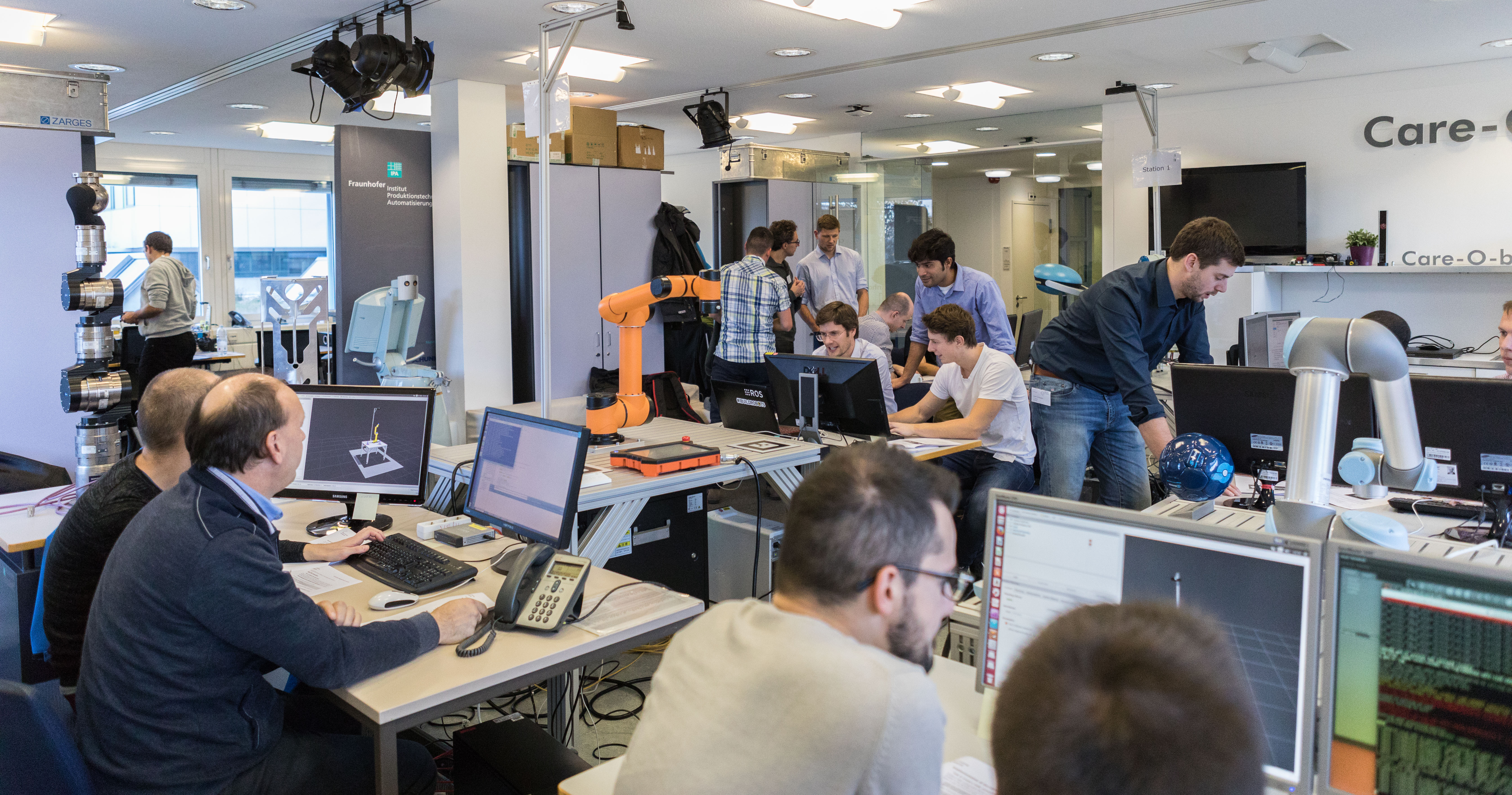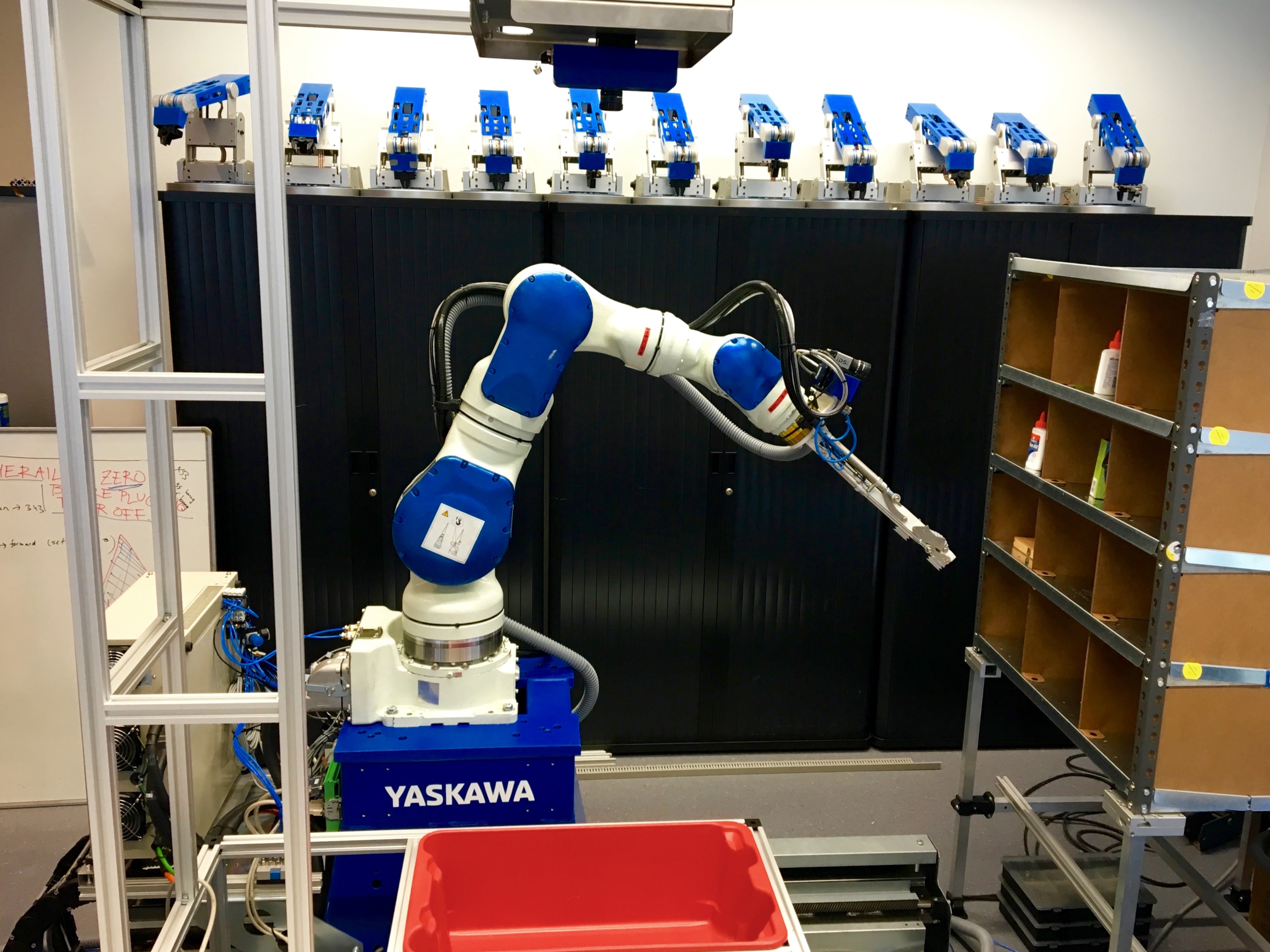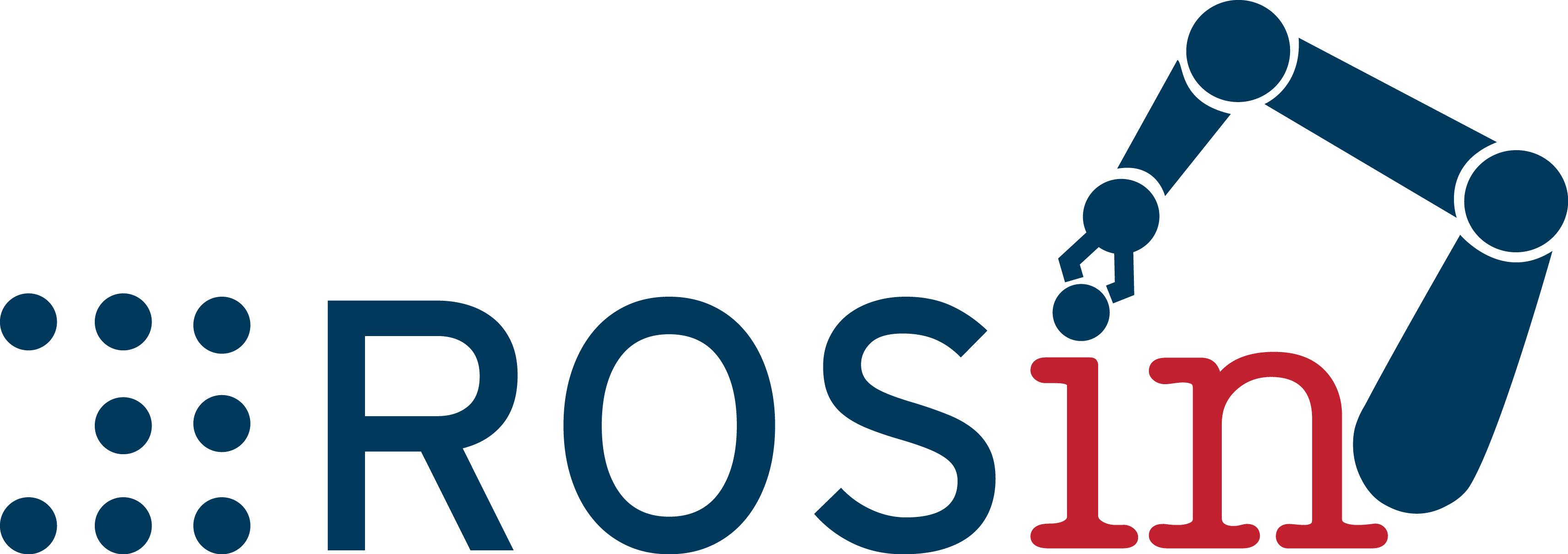The ROSIN project: towards an EU Digital Industrial Platform for Robotics through Open-Source Software
Open-Source Software for robots is a de-facto practice in academia, and its advantages can also benefit industrial applications. The worldwide ROS-Industrial initiative has been using ROS, the Robot Operating System, to this end. To consolidate Europe’s dominance in advanced manufacturing, ROSIN with Fraunhofer IPA as one of the partners will push the role of the EU within ROSIndustrial to a leading position. It will achieve this through three main actions: ensuring industrial-grade software quality, promoting new business-relevant applications by providing 50% of the project’s budget for European users and developers, supporting educational activities for students and industry professionals. Interested entities are welcome to apply for participation.



Bringing ROS to the factory floor by improving software quality
To achieve the project’s aims, the partners – besides Fraunhofer IPA it is TU Delft as coordinator, the IT University of Copenhagen, the FH Aachen University of Applied Sciences, Fundacion Tecnalia Research & Innovation and ABB AB – need to answer two questions on the suitability of open-source software (OSS) for manufacturing. The first one is about software quality, which has to conform to industrial requirements. To ensure this, ROSIN introduces a breakthrough innovation in automated code quality testing in an effort led by the IT University of Copenhagen. This is complemented with a full palette of quality assurance measures including novel model-in-the-loop continuous integration testing with ABB robots.
The second question focuses on the level of industrial interest in Europe towards OSS and the opportunity to further invest in it. On the one hand, there are already examples of operating installations running on ROS. On the other, this question is closely related to code quality, with the two factors holding each other in deadlock: further quality improvement requires industrial investment, and vice versa. ROSIN will resolve this deadlock.
Targeted investments for interested entities
In parallel to the developments bringing quality improvements, more ROS-Industrial tools and components will be created and existing ones will be improved. This will be performed by making 50% of the ROSIN budget available to collaborating European users and developers for so-called Focused Technical Projects (FTPs). ROSIN maximizes budget efficacy by alleviating yet another deadlock: experience shows that industry will fund ROS-Industrial developments, but only after successful delivery. ROSIN provides pre-financing for FTP developers to reach the first milestone (up to 30% of the total costs), when such developers commit to subsequently fund the remaining expenses. Entities (with a legal seat in the EU and collaborating countries) interested in this financially supported collaboration are welcome to apply via www.rosin-project.eu.
Support for educational activities and commercial exploitation
Broad EU-wide educational activities, led by FH Aachen, and community-building activities, led by Fraunhofer IPA, will make ROS-Industrial a well-known, accessible tool for factory automation. To ease commercial exploitation of ROS-Industrial applications, Tecnalia will coordinate the creation of a commercial release template with guidelines addressing technical and non-technical (e.g., licensing) matters. The critical mass of trained students and professionals, together with a clear path to commercial exploitation, will result in a widely adopted, high quality, open-source industrial platform.
Compact information
Full project title: ROSIN – ROS-Industrial quality-assured robot software components
Duration: January 1st 2017 to December 31st 2020
Website: www.rosin-project.eu
Funding: This project is funded by the European Union’s Horizon 2020 research and innovation programme under grant agreement No 732287. Total EU contribution: 7.504.236 EUR.
Project partners: Delft University of Technology (The Netherlands, coordinator), Fraunhofer Institute for Manufacturing Engineering and Automation IPA (Germany), IT University of Copenhagen (Denmark), Fachhochschule Aachen University of Applied Sciences (Germany), Fundacion Tecnalia Research and Innovation (Spain), ABB AB (Sweden).
Upcoming events:
March 22nd to March 24th 2017: Project partners will be available at the European Robotics Forum (ERF) in Edinburgh.
April 19th to April 21st 2017: Project partners will be available at Robobusiness Europe, hosted by RoboValley in The Hague and Delft.